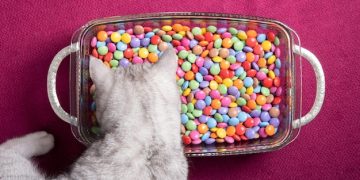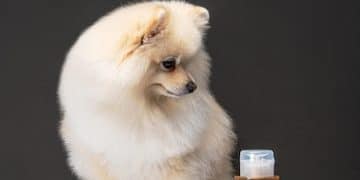Unlock Your Pet’s Potential: The Benefits of Puzzle Toys
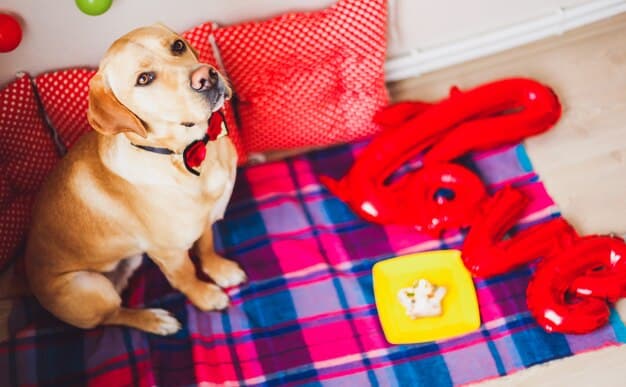
Puzzle toys for pets offer significant benefits by providing mental stimulation and preventing boredom, which can lead to happier, healthier, and more well-behaved animals.
Do you ever wonder if your furry friend is bored while you’re away? The solution might be simpler than you think: puzzle toys for pets. These aren’t just playthings; they’re tools for mental stimulation and preventing boredom, essential components of a pet’s overall well-being.
The Science Behind Pet Boredom and Puzzle Toys
Understanding why pets get bored is the first step in appreciating the value of puzzle toys. Just like humans, animals need mental challenges to stay engaged and content. Without adequate stimulation, pets can develop destructive behaviors or suffer from anxiety and depression.
Puzzle toys tap into an animal’s natural instincts, such as hunting, foraging, and problem-solving. By providing a constructive outlet for these behaviors, puzzle toys can significantly improve a pet’s quality of life.
The Neurological Benefits
Engaging with puzzle toys stimulates a pet’s brain, prompting the release of endorphins, which are natural mood boosters. This mental workout can help reduce stress and anxiety, leading to a calmer and happier pet.
Preventing Destructive Behaviors
Boredom is a primary driver of destructive behaviors in pets, such as chewing furniture or excessive barking. Puzzle toys provide a positive distraction, redirecting a pet’s energy towards a more appropriate and fulfilling activity.
- Reduces Anxiety: Keeps pets engaged and reduces separation anxiety.
- Enhances Cognitive Skills: Improves problem-solving abilities.
- Promotes Physical Activity: Encourages movement and play.
- Strengthens the Bond: Provides an opportunity for interaction between pet and owner.
In essence, puzzle toys are not just about keeping your pet occupied; they’re about enriching their lives by providing mental and physical stimulation that aligns with their natural instincts.
Choosing the Right Puzzle Toy for Your Pet
With a plethora of puzzle toys available, selecting the right one for your pet can seem daunting. However, by considering a few key factors, you can ensure that you choose a toy that is both engaging and safe for your furry friend.
Consider your pet’s breed, age, and personality when making your selection. Some pets may prefer simple puzzles, while others thrive on more complex challenges. It’s also important to choose toys made from durable, non-toxic materials to ensure your pet’s safety.
Understanding Your Pet’s Personality
Is your pet a power chewer? Or a strategic thinker? Understanding your pet’s personality will help you choose a puzzle toy that suits their style.
Considering Different Types of Puzzle Toys
From treat-dispensing balls to multi-level puzzles, there’s a puzzle toy for every pet. Experiment with different types to find out what your pet enjoys the most.
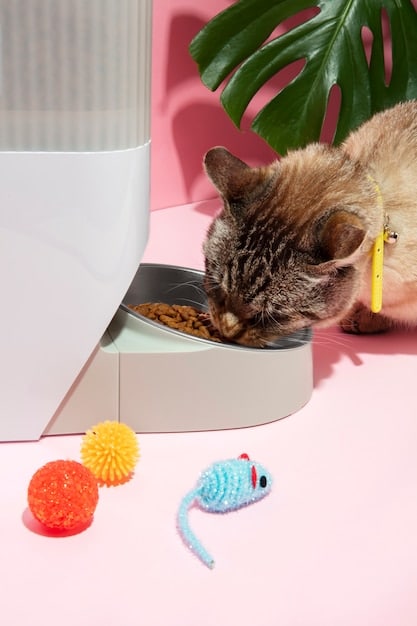
- Treat-Dispensing Balls: Great for active pets who enjoy chasing and retrieving.
- Sliding Puzzles: Ideal for pets who enjoy problem-solving and using their paws.
- Snuffle Mats: Perfect for pets who love to sniff and forage for food.
- Interactive Feeders: Slow down eating and provide mental stimulation during meal times.
The key is to start with simpler puzzles and gradually increase the difficulty as your pet becomes more proficient. This approach will prevent frustration and keep your pet engaged in the long run.
The Benefits of Puzzle Toys for Dogs
Dogs, with their high intelligence and boundless energy, are particularly well-suited to benefit from puzzle toys. These toys can help satisfy a dog’s natural instincts, reduce anxiety, and promote overall well-being.
Puzzle toys for dogs come in a variety of forms, from treat-dispensing puzzles to interactive feeders. By engaging with these toys, dogs can exercise their minds, sharpen their problem-solving skills, and enjoy a sense of accomplishment.
Mental Stimulation
Puzzle toys provide a mental workout for dogs, helping to keep their minds sharp and engaged. This can be especially beneficial for older dogs or those who spend a lot of time indoors.
Reducing Anxiety
Puzzle toys can help reduce anxiety in dogs by providing a positive distraction and a sense of control. This can be particularly helpful for dogs who suffer from separation anxiety or fear of loud noises.
- Improved Focus: Helps dogs concentrate and stay attentive.
- Reduced Barking: Deters excessive barking by providing a more engaging activity.
- Better Sleep: Promotes restful sleep by tiring out the mind.
- Healthier Weight: Encourages slower eating and prevents overeating.
By incorporating puzzle toys into your dog’s routine, you can provide them with a fun and rewarding way to exercise their mind, reduce anxiety, and improve their overall quality of life.
The Benefits of Puzzle Toys for Cats
Cats, often perceived as independent and self-sufficient, also benefit greatly from puzzle toys. These toys can help stimulate a cat’s natural hunting instincts, reduce boredom, and promote physical activity.
Puzzle toys for cats come in a variety of forms, from treat-dispensing balls to interactive feeders. By engaging with these toys, cats can exercise their minds, sharpen their hunting skills, and enjoy a sense of accomplishment.
Stimulating Hunting Instincts
Puzzle toys tap into a cat’s natural hunting instincts, providing them with a safe and satisfying way to stalk, chase, and pounce. This can be especially beneficial for indoor cats who may not have many opportunities to express these behaviors.
Reducing Boredom
Puzzle toys can help reduce boredom in cats by providing a stimulating and engaging activity. This can be particularly helpful for cats who spend a lot of time alone or who are prone to destructive behaviors.
- Enhanced Playtime: Makes playtime more interactive and enjoyable.
- Weight Management: Helps control weight by making cats work for their food.
- Improved Digestion: Slows down eating, aiding in better digestion.
- Sharper Senses: Keeps senses sharp by encouraging sniffing and exploring.
By incorporating puzzle toys into your cat’s routine, you can provide them with a fun and rewarding way to exercise their mind, satisfy their hunting instincts, and improve their overall quality of life.
DIY Puzzle Toys for Pets
If you’re feeling creative, you can even make your own puzzle toys for your pets. DIY puzzle toys can be a fun and cost-effective way to provide your furry friend with mental stimulation and prevent boredom.
Simple materials, such as cardboard boxes, plastic bottles, and old socks, can be transformed into engaging puzzle toys. Just be sure to use non-toxic materials and supervise your pet while they’re playing with the toy.
Simple DIY Ideas
From treat-filled cardboard rolls to knotted fleece toys, there are countless DIY puzzle toy ideas to explore. Get creative and tailor the toys to your pet’s specific interests and abilities.
Ensure Safety
When creating DIY puzzle toys, prioritizing your pet’s safety is crucial. Avoid using small parts that could be swallowed and always supervise your pet during playtime to prevent any accidents.
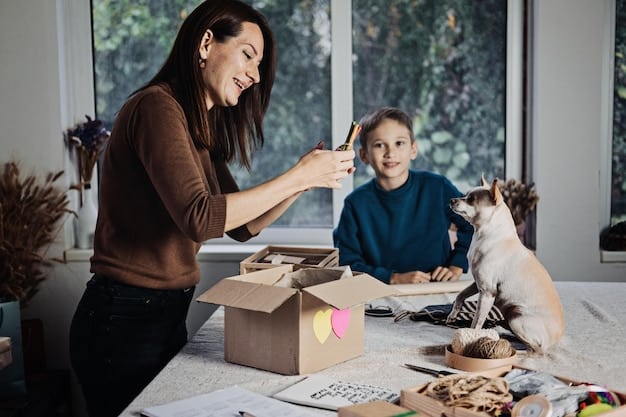
- Cardboard Box Puzzle: Cut holes in a cardboard box, hide treats inside, and let your pet figure out how to get them out.
- Plastic Bottle Spinner: Poke holes in a plastic bottle, fill it with treats, and let your pet spin it to release the treats.
- Sock Puzzle: Hide treats in an old sock, tie it in a knot, and let your pet untie it to get the treats.
- Muffin Tin Game: Place treats in muffin tin compartments, cover some with tennis balls, and let your pet discover them.
By making your own puzzle toys, you can provide your pet with a unique and engaging way to exercise their mind, satisfy their instincts, and strengthen your bond.
Integrating Puzzle Toys into Your Pet’s Daily Routine
To maximize the benefits of puzzle toys, it’s important to integrate them into your pet’s daily routine. Consistency is key when it comes to providing mental stimulation and preventing boredom.
Start by introducing puzzle toys gradually, allowing your pet to explore them at their own pace. Offer praise and encouragement as your pet engages with the toy, and make sure to supervise them during playtime to ensure their safety.
Start Slow
Initially, leave puzzle toys out for short periods and gradually increase the duration as your pet becomes more comfortable. This will help prevent frustration and keep your pet engaged.
Vary the Toys
Rotate puzzle toys regularly to keep your pet interested and challenged. This will prevent them from becoming bored with the same toys and encourage them to develop new problem-solving skills.
By integrating puzzle toys into your pet’s daily routine, you can provide them with a consistent source of mental stimulation, prevent boredom, and improve their overall quality of life.
| Key Point | Brief Description |
|---|---|
| 🧠 Mental Stimulation | Keeps pets engaged and sharpens cognitive skills. |
| 🐾 Prevents Boredom | Reduces destructive behaviors and anxiety. |
| 🍖 Natural Instincts | Taps into hunting and foraging instincts. |
| 🛠️ DIY Options | Cost-effective and customizable solutions. |
Frequently Asked Questions (FAQs)
▼
Puzzle toys primarily offer mental stimulation which prevents boredom and reduces anxiety. They also tap into natural instincts like hunting and foraging, enhancing your pet’s overall well-being.
▼
Consider your pet’s age, breed, and personality when selecting a puzzle toy. Opt for durable, non-toxic materials, and start with simpler puzzles before moving to more complex ones.
▼
Yes, you can create DIY puzzle toys using materials like cardboard boxes, plastic bottles, and old socks. Ensure the materials are non-toxic and always supervise your pet during playtime.
▼
Integrating puzzle toys into your pet’s daily routine provides consistent mental stimulation. Start with short periods and gradually increase the duration as your pet becomes more comfortable with the toys.
▼
Examples include treat-dispensing balls, sliding puzzles, snuffle mats, and interactive feeders for both dogs and cats. DIY options include cardboard box puzzles and sock puzzles.
Conclusion
In conclusion, puzzle toys for pets are invaluable tools for promoting mental stimulation and preventing boredom. By choosing the right toys and integrating them into your pet’s daily routine, you can significantly enhance their well-being, reduce anxiety, and strengthen your bond. Whether you opt for store-bought puzzles or DIY creations, the benefits of puzzle toys are undeniable for both dogs and cats.

